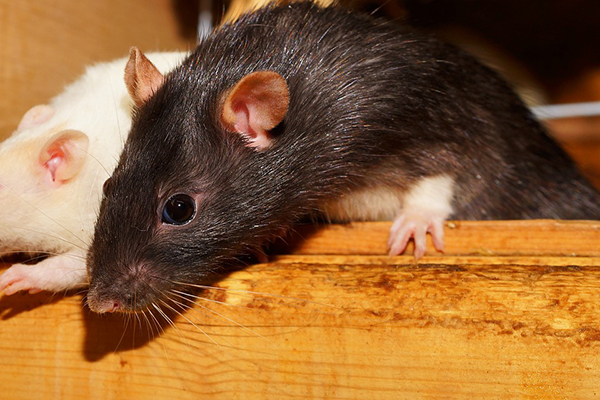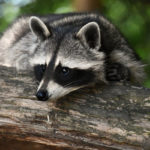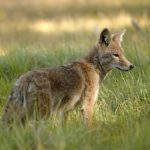
- Brian Moss (President)
- AAAC Wildlife Removal
11/28/2022 Total words : 1485
When Is the Breeding Season of Rodents?
The rodent family is one of the most diverse mammal groups in the world, with over 1,500 different living species. This includes some of the most well-known animals, such as mice, rats, and squirrels. While they come in all shapes and sizes, all rodents have in common is that they reproduce quickly. Many species can have up to 12 litters of babies per year! So when is the best time to start your rodent breeding program? The answer may surprise you, but there is no one-size-fits-all answer to this question. The breeding season can vary widely depending on the rodent species, climate, and other factors. In general, though, rodents are always in heat, and their breeding begins during springtime. For some species, such as deer mice, breeding begins as early as February! This is when food is plentiful, and the weather is warm enough for young animals to survive. Is There a Breeding Season? Rodents have pretty interesting breeding habits. Technically, they do not have a mating season, they can breed year-round. However, there are certain times of the year when conditions are ideal for breeding. As mentioned, spring and summer are typically the best times to breed since natural food sources are plentiful and the weather is warm. Additionally, this is also the time when most young rodents are born. During winter months, their reproduction often diminishes because of cold temperatures. The Breeding Cycle The rodent breeding cycle similarly occurs like other animals. It typically consists of four stages: 1. Pre-mating: This is when the male and female rodents first meet each other. 2. Mating: The male and female will mate during this stage. 3. Gestation: This is the period between mating and giving birth. For most rodents, gestation lasts about only three weeks. 4. Lactation: This is the final stage when the mother is nursing her young. After the estrous cycle is complete, the process will start again. Depending on the rodent species, this can happen multiple times throughout the year. Rodent litters Rodents multiply differently at their own pace. Once rodents reach sexual maturity, they can reproduce and give birth to a litter ranging from 1 to 12 offsprings, with the average being 4-6. This number may seem small, but it's pretty huge, considering how quickly these animals reproduce. For example, a female mouse can have up to 10 litters per year, each containing 5-7 young. That means she could have over 50 babies in a single year! Similarly, a female rat or brown rat can have up to 12 litters per year, each containing 6-8 young. That means she could have over 100 babies in a single year! How Quickly an Infestation Occurs One of the reasons why rodents are such a nuisance is because they reproduce so quickly. A single pair of mice can produce over 100 offspring if left unchecked in six months. Taking action as soon as you see signs of an infestation is essential. Precautions To Take For Rodent Season Rodents can cause a lot of damage to your house and property. They can destroy insulation, chew through electrical wires, and contaminate food sources. To prevent an infestation, there are some precautions you can take: Look for signs of infestation Look for signs such as droppings, gnawed food packaging, or nesting materials. You also have to observe scurrying noises on your walls or ceiling. If you see any of these, take action immediately. Get rid of clutter Rodents love to nest in cluttered areas such as attics, garages, and storage sheds. To prevent them from taking up residence in your home, get rid of any clutter that you have. Another way to prevent rodents is to keep food sources sealed. This includes storing dry goods in airtight containers and disposing of garbage properly. Seal cracks and crevices Take a walk around your home and look for any cracks or crevices that rodents could use to get inside. Once you've found them, seal them up with caulk or steel wool. Monitor pet food If you have pets, make sure to monitor their food closely. Rodents often eat pet food, so keeping it in a sealed container is essential. You should also avoid leaving food out in the open. This includes not leaving dirty dishes in the sink and sweeping crumbs after meals. Signs of Infestation The best way to deal with a rodent infestation is to prevent one from happening in the first place. But if you do find yourself with an infestation, there are some signs to look for: Droppings: One of the most apparent signs of an infestation is droppings. Rodent droppings are small, dark, and pellet-shaped. You may find them where food is kept or near nesting materials. Nesting materials: If you see pieces of shredded paper, fabric, or insulation, it could be a sign that rodents are using them to build their shelter. Gnawed holes: Rodents need to gnaw on things to keep their teeth from growing too long. If you see holes in food packaging or furniture, it's a sign that rodents are present. Scratching noises: You may hear scratching noises from your crawl spaces, walls, or ceilings. This is usually a sign of rats or mice. Immediately set your house up for inspection if you see any of these signs. Rodents reproduce quickly, so the sooner you get rid of them, the better. How to Get Rid of Rodents Once you've determined that you have an infestation, it's time to take action. There are a few different ways to get rid of rodents: Traps: One of the most common ways to get rid of rodents is to use traps. Many types of traps are available, including snap traps, glue traps, and live traps. Insecticides or pesticides: You can also use insecticide treatment products or chemicals to kill rodents. This is best used in combination with traps. Exclusion: Exclusion is one of the methods to prevent rodents from entering homes in the first place. This involves sealing up any cracks or crevices they could use to get inside. Profession Wildlife Removal Service: If you're having trouble getting rid of rodents, consider hiring a professional. Wildlife removal services can get rid of your infestation quickly. Our team at AAAC Wildlife Removal is experienced not only in rodent and wildlife removal matters. If you're struggling with bed bugs, termites, mosquitoes, ants, cockroaches, and other insects, we'll also be your exterminator! These insects can hatch their eggs quickly, so experts in the field will effectively solve the infestation. You no longer have to break a sweat. Need Help With Rodents? AAAC Wildlife Removal is an expert in dealing with rodents. We have the experience and equipment to eliminate your infestation quickly and effectively. Our company could also be your best partner for unwelcome wild animals. We know how much damage these sneaky pests can cause, so we always come to your rescue as soon as possible. Contact us today if you're dealing with a rodent problem. We'll be happy to help you get rid of them for good. Conclusions Conclusion Rodents are a nuisance to many homeowners because they reproduce quickly and can cause problems. They may be more sexually active in springtime and summer, but they're active year-round, making them multiply fast and becoming a consistent pain in the neck. Rodents, especially mice and rats, love a cluttered environment. They can infest many places and make them a suitable environment for their shelter. To prevent an infestation, seal up cracks and crevices, get rid of clutter, and monitor pet food. But if it gets uncontrollable and worse, call pest control services. If you're interested in learning more about the breeding season of rodents and understanding their reproductive habits, click here: breeding season of rodents. Gaining insights into their breeding patterns can help you take proactive measures to control their population and prevent infestations. If you're dealing with a rodent problem that requires professional assistance, don't hesitate to contact AAAC Wildlife Removal. Our experienced team can provide effective rodent control solutions tailored to your specific needs. FAQs How many species of rodents are there? Rodents are not only rats and mice. It is a large family that consists of over 1,500 members. The largest rodents are Capybaras, and the smallest are Pygmy Jerboas. The family also consists of species like beavers, squirrels, gerbils, spiny mice, brown rats, hamsters, voles, lemmings, pocket mice, chipmunks, chinchillas, guinea pigs, kangaroo rats, degus, naked mole-rats, cane rats, marmots, porcupines, and prairie dogs. Do all rodents have tails? No. There are some species of tailless rodents like the Capybara and the Cuis. What do baby rodents eat? Baby rodents are born blind and deaf. Their mother's milk is very high in fat and protein to help them multiply. As they get older, they will start to eat solid food. Do rodents spread disease? Yes. Rodents can carry harmful diseases like Salmonella, Hantavirus, and Leptospirosis. They can also transmit parasites like fleas, mites, and ticks.













